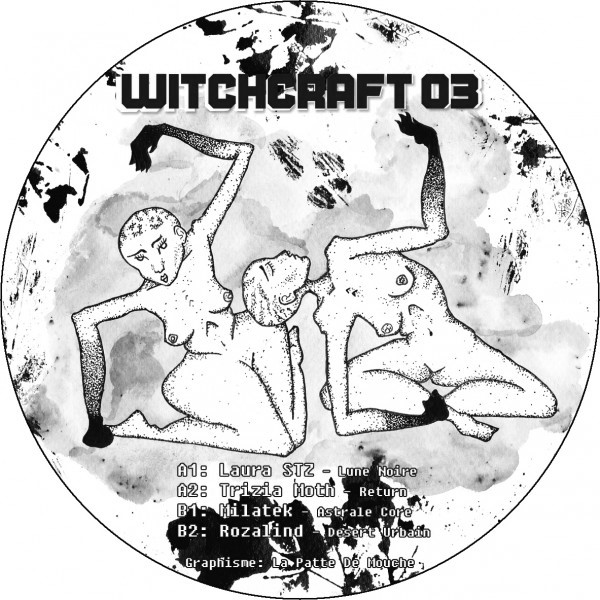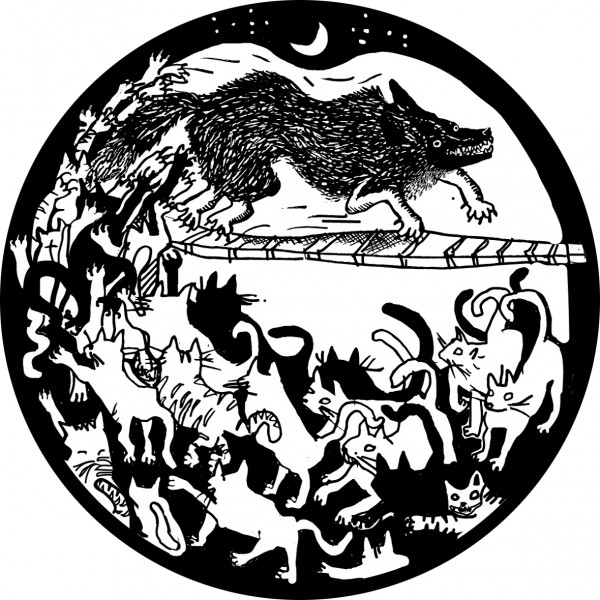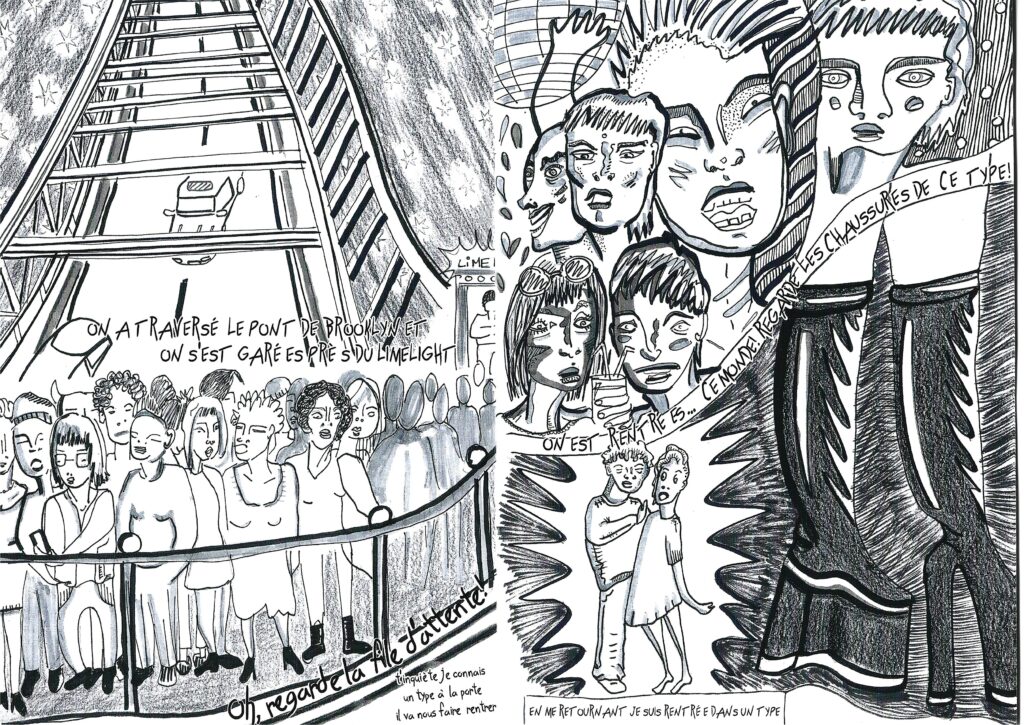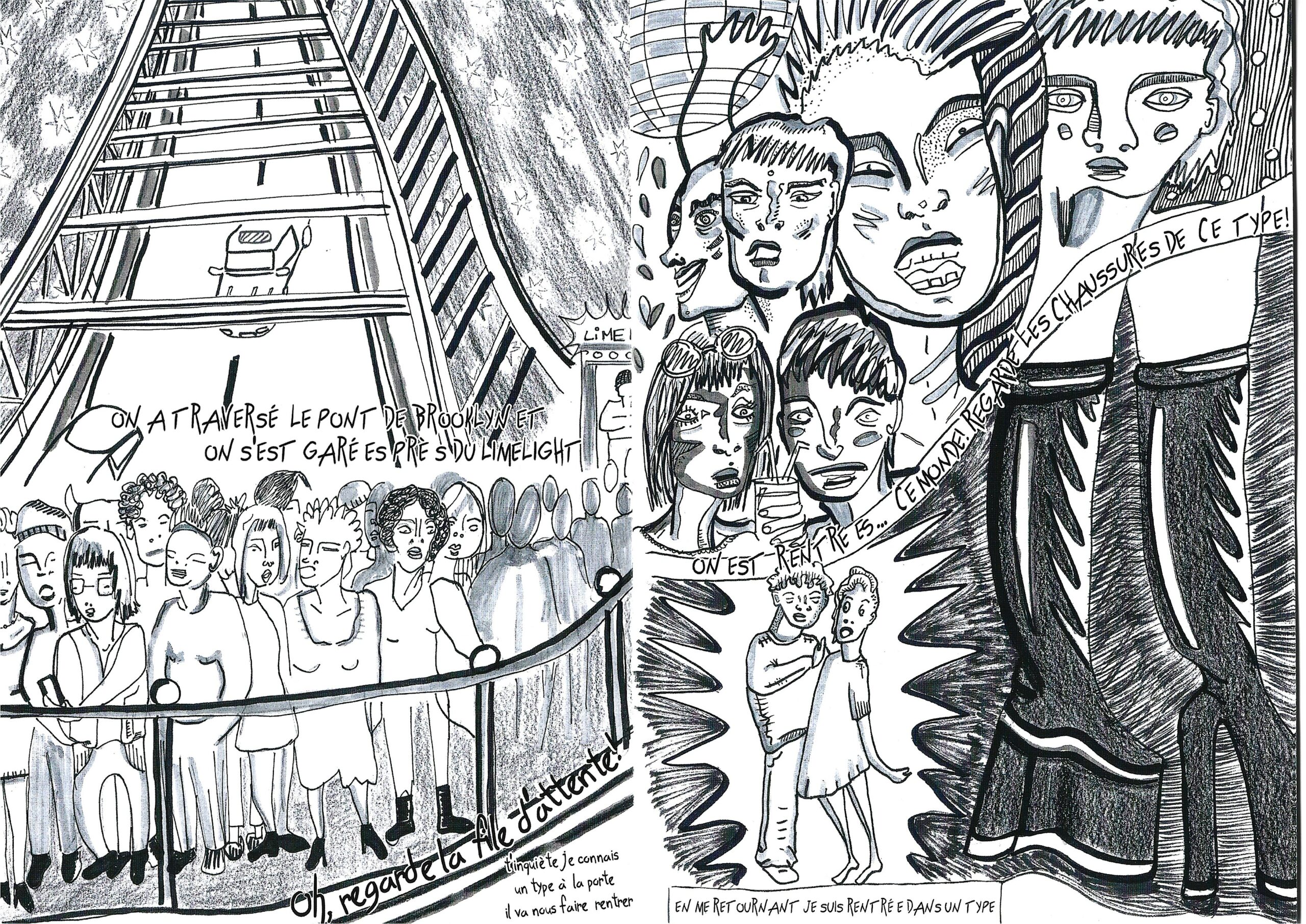Witchcraft Records
« Endemic sexism and tekno underground »
4 years ago, a new vinyl label from tekno underground was born : Witchcraft Records. Between hardcore, hardtek and mental acid tribe influences, this new Barouf project called « Enfants Sage » has the particularity to be entirely made by female artists.
When Barouf emailed us last year, it wasn’t about promoting his most recent vinyl release. It was to tell us about a text he’d written about the tekno undergroung and free party world. Even though this world defines itself as « alternative », it isn’t immune to problematic social constructions, therefore reproducing some high-consequences inequality-inducing mechanisms. Homophobic or sexist behaviours are still profoundly anchored in the mentalities.
So we came to the Tarn to talk about this together ! The interview will be followed by an extract of the text by Witchcraft Records. It is about the publication of a comic strip, which has been inserted in their third vinyl.
| By Polka B. / Illustrations: Melle Pin / Translation: Julie B.

Interview : Hervé « Barouf » (Les Enfants Sages / Witchcraft Records)

How did you get the idea of founding an exclusively feminine label?
I’ve always been active in the production area of the the tekno free party world. I’ve been releasing disks for 20 years now, and I almost feel liable for everything techno has taught me, since it represents a big part of my education.
I want to keep putting more and more conviction into my work. Looking back, I realised that only 1% of my releases were female artists. So the idea behind this exclusively feminine label was to incite the people we see and hear all the time to leave some space for others. But it doesn’t sound quite right to some people. I soon realised that sexism was still very much present and anchored in the world of free party.
Do you think it might also be a generational problem?
I started back in the 90s. I’m part of the « second generation », the one that saw free-party get less and less political with the years. At the beginning of the 2000s, people just came there to get some. Sure, there were some cool stuff to attend, but the political ideas just dissolved.
The imagery that subsisted was something manly : images of dust, muscles, big trucks and smells of gasoil. It was a huge paradox. This movement that was first impulsed by anti-authoritarian values now seems hermetic to self-questioning. Just like in our society, where big straight guy still dominate everything.
Well, talking about that, isn’t it contradictory to found a 100% female label, being a man?
Well, the producers are, for the crushing majority, men. As a man, I recognise I’ve been largely privileged. It is a fact. I didn’t even realise it when I was young, because I hadn’t even thought of it !
I didn’t see this invisibilization phenomenon. It’s the heart of the problem. So I feel like, to change things, you have to start somewhere. With this label, I offer a space. I try to build ways into the questioning of our practices.

Did you expect such reluctance from guys who feel « endangered »?
Yes, I did, because when you try to touch a hegemony, you face some tensions. We released a comic strip, drawn by Cassandre, to denounce a sexist techno sound, on our 3rd vinyl. I was shocked by most of the feedback.
Many people still don’t accept that things have to change. But I’m confident. Right now, politics are coming back stronger in the world of free party, and it’s encouraging !

Witchcraft Records artists to discover:

Naya WK
KAN10
La Kajofol
Pix Elles
Grace et Volupte Van Van
Laura STZ
Trizia Moth
Milatek
Rozalind.


Witchcraft Records‘ testimony
– The label’s comic strip –
For the release of the third vinyl of the label, at the end of 2020, we thought it would be a good idea to add a comic strip. It is inspired by a terrible techno song from the 90s in which the authors relates the story of a rape he committed on a fifteen-year-old minor. (The Horrorist – One Night In New York City)
This queasy text has clubbed many generations of ravers, insinuating that this kind of behaviour was the norm in the night scene.
The idea behind the comic strip was to literally write every word of the song (translated from the US English version), and only changing the ending. It was to state that we will not tolerate neither these behaviours, nor its legitimization or its aesthetization. These gross shitheads who sell drugs to (young) women in order to rape them : out of our lives ! Not in our parties, not anywhere else !
When the comic strip was released, I talked about it on the internet, and I explained its content. In only a few minutes, a horde of forty-something men came together against this project in a fury. Well, the song quoted in the strip is an international success, and had propelled its writer on top of the worldwide tekno scene. This song has been broadcasted thousands of times in many different parties ever since 1996 ; whether it was played in 45 circuits or 33 circuits, in the most underground places as well as the most mainstream ones.
Disgusted by the unanimity of the agressive critics, and tired by the fruitless internet debates, I deleted the original message and its comments. I didn’t think of keeping a copy of all this, but to sum it up quickly, it was something like that : « WE » can’t say anything nowadays, you should keep a distance and not take everything so literally, only idiots don’t understand the song is ironical, blah, blah, blah…
To sum it up : success keeps you from critics. You can’t touch the idols ! If you denounce the song « Fou d’Amour », which sublimates the murder of a woman, all the Johnny Hallyday fans will come at you ; well, it’s the same thing here. That guy, he’s the old raver’s Johnny. To touch their idol means to put their whole world in question. But they have to understand : we don’t want their shitty world anymore !
And we’re changing it, with or without them : their sobs won’t change anything. And this impossibility to touch the idols isn’t just true for tekno. The « in » term to justify what can’t be justified is « re-contextualization ».
This magic word (which, in many cases, is interesting) allows people to keep idolizing the idols from their youth, as if creative contents were necessarily generational. An old asshole who despises new generations and new cultures, and wants to stay tied to his past, well, he must invoke « re-contextualization » in order to keep listening to his old sexist rock’n’roll. It’s always easier than trying to find new ways. This hypocrisy easily applies to music, and it is therefore acceptable to listen to « Under My Thumb » by the Rolling Stones, when it’s not okay to listen to some racist one man show from Michel Leeb.
In the tekno milieu, it’s become the same. Success provides an excuse for anything. But tekno is very accessible, easy to produce and to diffuse, so it is our responsibility to create new content that is not sexist, that doesn’t sublimate or excuse rape, that doesn’t encourage killing women, and finally stops praising old, dangerous idols.

